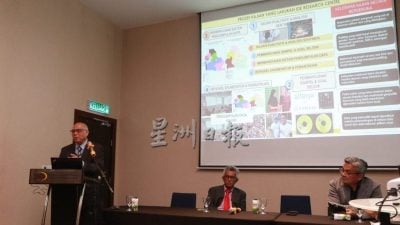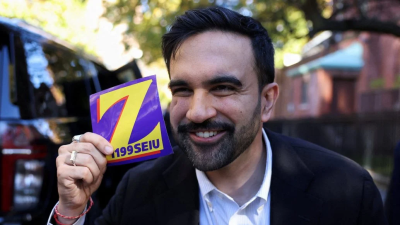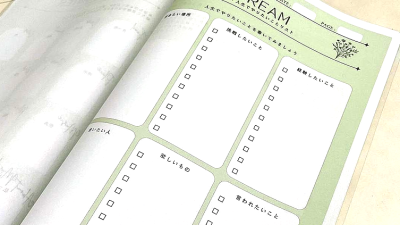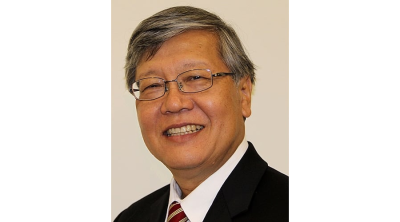By Wong Tai-Chee
La Dernière Classe (The Last Class) by 19th century French author Alphonse Daudet is a very touching literary masterpiece about the cession of Alsace and Lorraine to Prussia in the aftermath of the Franco-Prussian war. Soon after taking over the two provinces, the Germans banned the teaching of French at the local schools.
The story about a primary school student having his last lesson in French depicts the convoluted feelings of a child soon to be denied the right to learn his mother language. The boy regretted having played truant too often in the past and would never forget what his teacher Monsieur Hamel told the class, that French is "the most beautiful language in the world" and that as long as he holds his tongue, it's as if he holds the key to his prison (tant qu'il tient sa langue, c'est comme s'il tenait la clef de sa prison).
Learning the mother tongue is a birthright of any people, but autocratic military regime of 19th century Germany embraced assimilation as a tool of reinforcing its grips on territories, not a democratic procedure that respects the rights of the minorities.
In Malaysia, we are constantly forced to face extreme racists who have attempted to close down existing Chinese and Tamil primary schools in stages under the pretext such schools are a stumbling block to national unity. But are these schools detrimental to national unity and intercommunity harmony as our deputy youth and sports minister Wan Ahmad Fayhsal would like others to believe? We feel this allegation is totally groundless. Wan Ahmad's unjustifiable and alarmist claim must be reprimanded in the strongest terms.
First and foremost, we have to explicitly state our position that in a multicultural society like ours, national unity should not be a product of forceful implementation of the government's assimilation policy, but through harmonious inter-mingling among the different ethnic communities as well as education.
What then is the true meaning of national unity and how to bring it to fruition?
Firstly, in a multiethnic country, national unity must be established upon the basis of racial equality, and the government's duty is to exercise its legal and administrative rights to ban all forms of ethnically oppressive and discriminatory acts. Only with such a foundation firmly in place will Malaysians from different cultural backgrounds care for one another and work in unison to preserve the well-being of all Malaysians irrespective of race and religion in achieving complete social harmony and our shared prosperity.
Secondly, national unity can also be achieved through modules like national service that instills tolerance, accommodativeness, and through appropriate training programs strengthens national identity awareness among young Malaysians by way of mutually understanding one another's cultures and customs.
Textbooks written in Chinese and Tamil should be reviewed and edited in accordance with the Rukunegara principles that promote greater solidarity to ensure that these textbooks will play an active role in boosting the students' national identity awareness.
So long as we practice this progressively and steadfastly, I believe new generation Chinese Malaysians will very soon gain a strong command of the national language in order to communicate and mingle seamlessly with their fellow compatriots from other ethnic backgrounds.
Meanwhile, they will also become more concerned about this country and foster a stronger cohesiveness. Perhaps the ratio of Malay students at SJKCs will be higher than the 15% at this moment, and they will be able to chat with their Chinese friends in Mandarin!
The narrow-minded Malay supremacists and a handful of Chinese university academics in the likes of Prof Dr Teo Kok Seong, are of the opinion that using a unitary teaching medium at schools is the only means to achieve national unity. Such an argument is unsubstantiated.
There are many elements detrimental to solidarity in a multicultural society, such as ethnic separatism, assimilation policy and oppression against the minorities by the majority-dominated regime, among others.
Perhaps we should take cue from what Switzerland and Belgium have been doing so well to allow different teaching mediums at different schools to achieve the goal of peaceful coexistence.
There are three different language streams of primary and secondary schools in Switzerland: German, French and Italian. Swiss parents can freely send their children to any school based on their own mother tongues. 65% of Swiss are native speakers of German, 18% French, 10% Italian and 7% others.
Since they have different teaching mediums at schools, you may wonder which language they will use when speaking with one another.
In German-speaking Switzerland, people speak German in day-to-day living despite their varying accents in different parts of the country. In German-speaking Switzerland, French is the second language; and German is tge second language in French-speaking Switzerland. Most Swiss speak two foreign languages, and English is a popular foreign language in the country.
Belgium, meanwhile, comprises two major ethnicities, the Flanders and Wallonia, who use their own languages and go to their own schools.
People in Flanders speak Flemish, a variant of Dutch, while in Wallonia, French is spoken widely.
French was originally the sole official language of the country but the majority Flemish fought for their language to be made a second official language as well as teaching medium in the region's schools.
Although Flanders and Wallonia are both in the same country, the educational policies of both regions are managed separately by their respective regional governments.
Even though schools in Switzerland and Belgium have their own teaching mediums, the people there remain united and they respect one another's cultures and languages. Their cultural differences do not constitute a major stumbling block to national cohesiveness and solidarity.
Perhaps this should serve as an inspiration for our narrow-minded Malay supremacists, Prof Teo et al to reflect on themselves?
(Wong Tai-Chee has his B.A and M.A degrees in Urban and Regional Planning from the University of Paris, and earned his PhD in Human Geography from the Australian National University. After teaching 20 years in Nanyang Technological University, Singapore, he retired in 2013. He then worked as Distinguished Professor for two years at Guizhou University of Finance and Economics, China, and as Dean and Professor at the Southern University College, Johor until the end of 2018. He was Visiting Professor to University of Paris (Sorbonne IV), Visiting Fellow to Pekin University, Tokyo University and University of Western Australia. His main research interests are in urban and economic issues, and more recently on Malaysian politics. Besides his 15 self-authored and edited book volumes, he has written over 100 academic articles and published widely in international journals.)

ADVERTISEMENT
ADVERTISEMENT


































